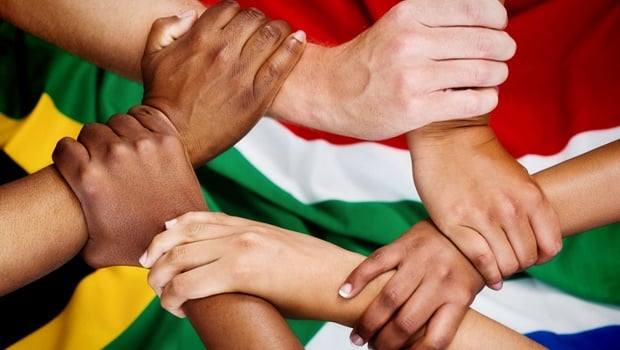In 2018 employing two languages interchangeably in conversation is common practice, at least for most South African millennials I know. This phenomenon is referred to as code-mixing or code-switching.
For our and the coming generation, many will not be able to string an entire conversation together without resorting to the Queen’s language for phrases and idioms.
Our Bantu, Sesotho and San language groups are overtaking English and Afrikaans as commercial languages of renown; of commentary and the subaltern.
One needs only to see our local TV adverts to know that marketing executives are using language-bending as a strategy, tending to write scripts in a bricolage of two or more of our official languages. This has turned most adverts into subtexts of cultural global flows and evolution, reinforcing a collective identity and offering us rib-cracking satire that only we can savour.
Code-mixing can become the lingua franca of our marketplace if only we stop judging each other by how well or badly we speak English. It has grown normal for a member of Parliament during a sitting of the House, or a news anchor during an interview, to use vernacular terms such as “wena”, “mara”, “yazi” or “nogal”.
In our 24-year-old democracy no one cringes or laughs. A memorable code-switching moment was when our former president in Parliament condemned those who couldn’t enunciate Nkandla, suddenly exclaiming “Thixo wase George Goch” in between chuckles. Many non-Xhosa-speakers consulted Facebook and Twitter, not only for the translation but also to understand the significance of George Goch and his God to try to catch the joke. Right there, a rigorous cultural narrative had been exchanged and vastly disseminated; an urban legend was unlocked. In this instance, code-switching was a reaffirmation of black identity; a cultural signification unravelled.
But code-switching can be disastrous, particularly in the context of tertiary education. During my undergraduate studies at Tukkies, I was to attend lectures for a particular module, facilitated in English and Afrikaans simultaneously. It was university policy. The lecturer would start in English and sporadically switch to Afrikaans, and vice versa. This meant that, if you did not understand one of those two languages, you would miss chunks of information conveyed. And, oh boy, if a student asked a question in Afrikaans, the lecturer would go off on a tangent in it and sometimes never return to English instruction.
Black children had to adapt or die. Code-switching was divisive, reflecting that our rainbow nation was neither colour-blind nor culturally fluid.
Side note: I would have preferred that the module had two different lecture groups, one in Afrikaans and the other in English. But that was during the young 2000s.
Currently, the millennial is a young robust adult and I would prefer that tertiary education be facilitated in isiZulu, Sesotho, Setswana, Tshivenda, Xitsonga and Khoi. But that is a topic for another time.
One asks whether code-mixing is a relevant topic in our society today, barraged as it is by femicide, pupil-teacher abuse, the state capture inquiry and rib-cracking Nando’s and Chicken Licken adverts. The last supports my thesis.
Language is the primary marker of any cultural group; its words carry symbols, folklore, historical subtexts, geographical and pastoral references, and genealogies. So language is where true transformation begins and dialogues of the significance of it and its codes must be right up there on the transformation agenda.
In the near future I suspect active citizens will begin to use language to negotiate power and control, while interrogating the relevance of English and Afrikaans as languages of imperialism. We will begin to see active citizens forcing down linguistic barriers to enter spaces and platforms that had shunned the illiterate.
The creative commons will open up to artists and artisans, blue-collar workers and small business owners who were deemed not eloquent because their English was poor.
Because then, all languages will matter and be empowered. And then we will say we’re a rainbow nation 2.0.
- Sibanda is a former cadet journalist, and a culture and media analyst
